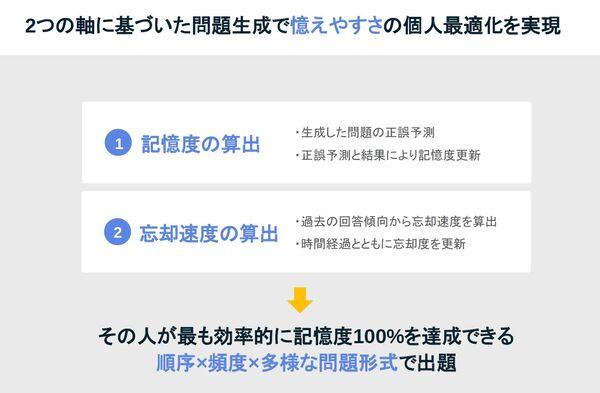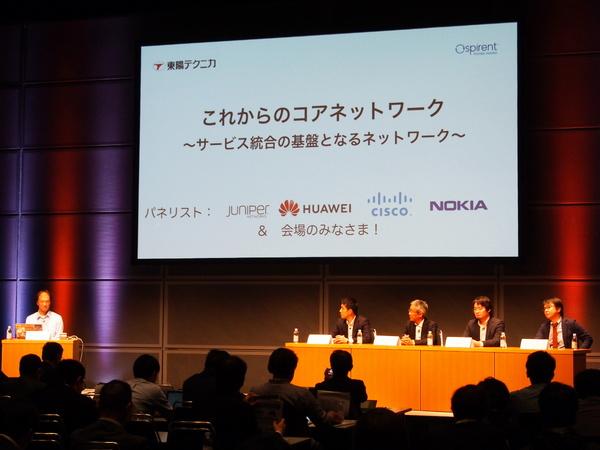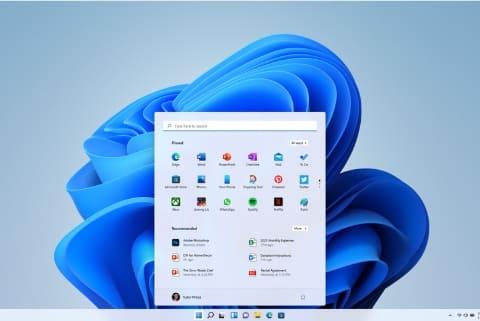ASCII Startup Aiming for zero memor...
27
12
ASCII Startup Aiming for zero memorization burden E-learning system Monoxer that runs the shortest distance
Since the corona crisis, there have been restrictions on meeting people. This is about to bring about a big change not only in the workplace but also in the education of children. One example is the government-promoted GIGA school initiative, which seeks to use the power of ICT to enhance educational effects when children study at school or at home.
Monogusa Inc. is a startup in the field called EdTech. We provide "Monoxer", a service that focuses on helping students "learn". We interviewed Mr. Kotaro Takeuchi, the founder and CEO of Monogusa, about the features and new functions of the company's services.
What is the e-learning system "Monoxer" for memory and fixation? It is an application that composes the curriculum of
Just by registering the questions you want to learn and the correct answers, the AI will automatically generate questions in a format according to the difficulty level, such as four choices including incorrect answers and free input. They are sent individually as assignments that are multiplied by "order x frequency x problem format" according to the student's memory level and forgetting speed calculated by the system.
By solving the assigned tasks, the students will be able to improve their memory retention with optimal efficiency and improve their test scores. For teachers, the visualized progress of students can be grasped in real time, so it is a system that is effective in reducing the burden of student guidance.
Children generally have a higher memory than adults, but it is not the case that children actually remember everything. Teachers at schools and cram schools make daily efforts to establish what they should learn through textbooks and tests.
Not just rote memorization, but "understanding" is of course important, but even if you understand what a fraction is and how to calculate its addition and division, that alone will not improve your grades. This is because the test requires speed, and in order to solve it quickly, it must be fixed in the brain as a memory so that the hand can move unconsciously. Monoxer's aim is to fix such memories. Mr. Takeuchi emphasizes this process by dividing it into three stages: "understanding," "establishment," and "utilization."
What should be noted is how these processes are handled in actual educational settings. While "understanding" can be taught to students in classes, etc., the process of "fixing" it as a memory is left to the students' self-study such as homework. The test is an opportunity for the teacher to know whether or not it is actually taking root, but this is also infrequent.
In addition, for students, the state of "remembering" differs from person to person. Some students claim that they "learned" a word after seeing it once, while others say they "learned" it after writing it three times in their exercise book. Even with the same "memorized", the degree of fixation differs, and the results appear as test scores.
In order for the teacher to guide the students to fix their memory, it is necessary to know what level of proficiency each student has reached, what kind of problems to do next at what timing, or Students must grasp the situation of preparation and review at home. In addition, tests must be conducted and graded to confirm the results. If it's not individual instruction, the more you think about the students, the heavier the teacher's burden will be.
By using Monoxer as a service, it is possible to support learning for "fixation" in a way that fits the individual, so teachers can spend more time on "understanding" and "utilization", so Recruitment by companies is said to be progressing.
Monoxer supports learners and teachers with a variety of functions
Monoxer has an automatic question generation function that generates questions of varying difficulty depending on the question format from the registered questions and correct answers. ing. According to Mr. Takeuchi, when it comes to memorizing, compared to the act of "reading" or "copying", there is a research presentation that makes it easier to memorize by repeatedly "solving" the problem presented in front of you. It is said that it is useful for memory fixation in the form of an actual application. The important thing here is what kind of problem you want to solve.
``If a problem is too difficult, people tend to give up and immediately think, 'I don't know, so let's look at the answer.' Therefore, when you register the information you want to memorize, the AI will change the difficulty level and generate the questions, as if you could adjust the amount of hints.By doing so, you can learn without hints We provide a service that can smoothly lift it up to the point where it is." (Takeuchi)

Furthermore, instead of challenging students in order from easy to difficult problems, Monoxer calculates two values using AI and optimizes the assignments given to students based on them.
The first value is the "remembering degree", which represents the student's way of remembering. Whether or not the student has fixed the memory correctly does not mean that it is OK just because he answered the question correctly twice in a row. Monoxer calculates the degree of memory from the prediction of the correctness of automatically generated questions and the correctness of the answers to the questions.
The second value is the "forgetting speed", which represents how the memorized information is forgotten. Humans tend to forget what they are good at and quickly forget what they are not good at. Therefore, based on past service results, we calculated the time until memory loss based on past response trends for each individual and information.
Based on these two values, Monoxer modifies the format and order of questions so that each student can most efficiently consolidate their memory.
Even memories that have been fixed by solving problems repeatedly will be forgotten. A student's ability is evaluated by their test scores, so even if a student can memorize 100 English words, it is meaningless if they forget them on the day of the test two months later.
Therefore, a learning plan function has been implemented that automatically sets a schedule (daily learning goals) for consolidating and updating memory according to set dates such as test days. Of course, the schedule is set individually according to the progress and memory status of each student.
"It is more important to take care not to forget than to memorize. Just specify the day you want to remember, and the AI will decide the daily plan until that day, including the iteration plan. If you spend every day as planned, you will be able to face the day in a state of long-term memory.I think this is the most important function at our company right now.
In the past, there was no way to check the progress of self-study at home in real time, and it was not possible for teachers to follow up with students in a timely manner. Even if test scores later reveal that memory retention is insufficient, by that time other learning items have already progressed, and unfinished work can lead to an increase in the burden on students and a decrease in motivation.
With Monoxer, it is possible to grasp the progress of students' "learning" in real time through a management screen that serves as a dashboard. Immediately following up with chats and messages to students who are a little behind is effective in maintaining and improving students' motivation to learn while reducing the burden on teachers.
In April 2021, we will release a "quiz function". It is now possible to conduct and grade quizzes on Monoxer to check the degree of understanding, which was previously conducted on paper. In quizzes, it is possible to conduct tests that are the same as paper-based tests, such as fixing the difficulty level and question order of all questions. Of course, since the grading is done automatically, it can be expected to be effective in reducing the burden on teachers.
Technically, it should be noted that Monoxer has functions such as handwritten character recognition and voice recognition. It is now possible to conduct online kanji tests, including stroke order, and it is possible to respond to English speaking questions that were difficult in classroom tests. Although it is called a "mini test", it is actually a function that can handle a wide variety of tests. He also pays attention to edge processing so that he can handle instant circles, and he says that he has developed a unique algorithm that does not rely on deep learning for handwritten character recognition.
"In the field of education, of course, we want to improve student grades, but things like work style reform for teachers are becoming more important. There are still areas that should be graded by humans in free descriptions, but English vocabulary tests The marking of kanji is the same no matter who does it, and if the kanji test is done by a machine, it will know the stroke order.The teachers are asking if we can entrust the marking of the entire class to the machine." (Mr. Takeuchi) )
Monoxer is for improving student grades
In the three stages of "understanding", "establishment" and "utilization" mentioned at the beginning, many EdTech ventures are trying to "understand". However, Takeuchi says that the focus should be on memory in order to improve students' grades.
``In the realm of understanding, if humans are replaced with machines such as systems and AI, productivity will basically decrease.In order for people to understand, it is necessary to have a ``parable'' that replaces what they do not understand with concepts they know. However, from the standpoint of AI, it has not yet been able to judge the level of understanding tailored to the individual, and the parts such as parables.It may have the effect of reducing costs, but I think that the effect of improving performance is small." (Mr. Takeuchi)
Monoxer does not aim to transcend learning by connecting the brain and computer/net as Elon Musk said.
"Thanks to the realization of Google search, everyone is convinced that they can 'know (something)'. In other words, they believe that they can do it themselves. For example, if you want to learn French, it is not enough to just search for it, you should try to understand it through books and lectures, and try to memorize it. If you push it once a day before, three months later, if there is a button that will help you learn French, I think you will continue to push that button.What we are aiming for is a world like that. I want to make the world a convincing world that there is a state of memory at the end of the accumulation.
I think everyone will realize in about 10 years' time that it's nonsense to not let a machine know when to forget (things). I wondered why I had been on my own until now." (Mr. Takeuchi)
Monogusa Co., Ltd. CEO Kotaro Takeuchi








